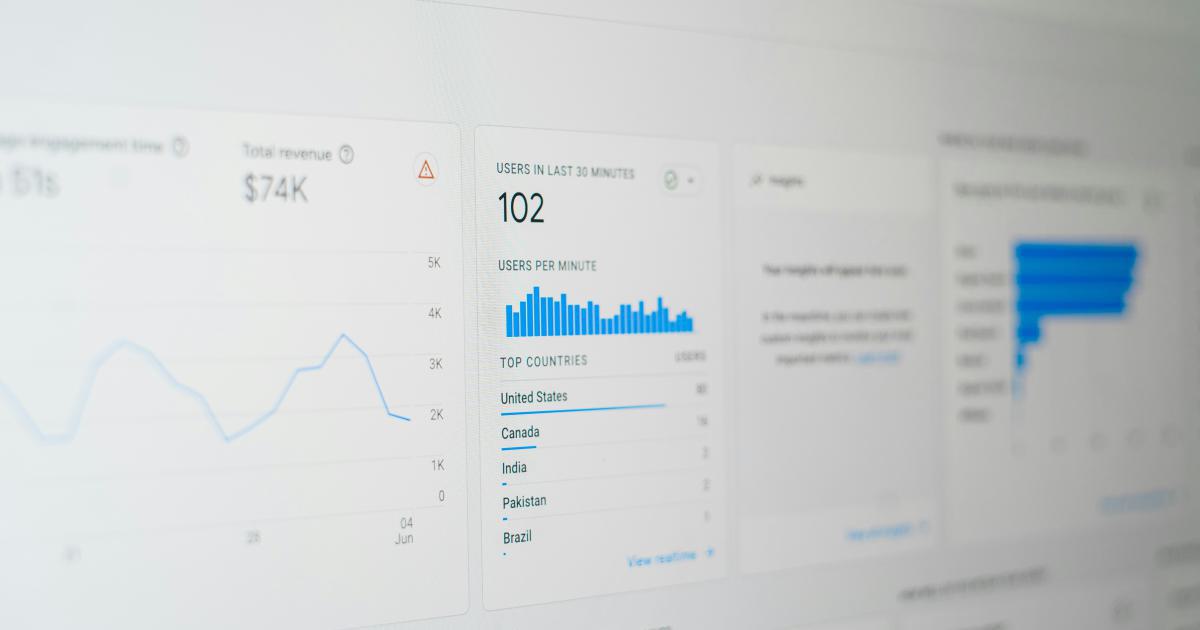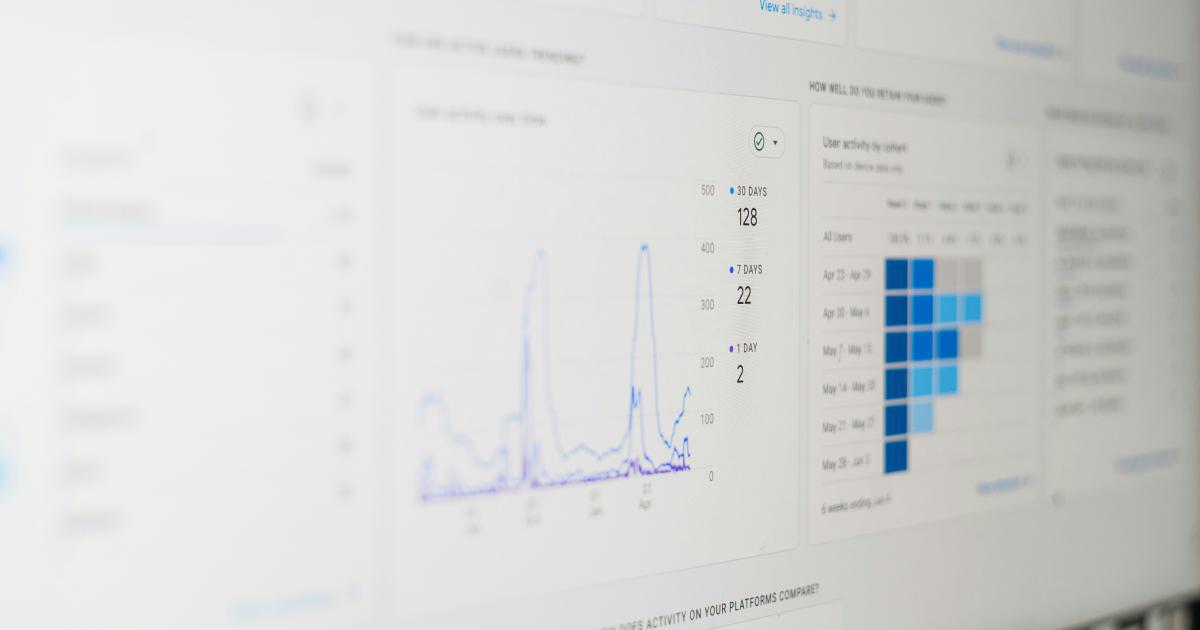What Are Crucial Marketing Metrics to Track?


Understanding the Importance of Marketing Metrics
In the dynamic and competitive world of marketing, data-driven decision-making has become crucial for businesses to stay ahead of the curve. Marketing metrics are the key performance indicators (KPIs) that allow marketers to measure the effectiveness of their strategies and campaigns, and make informed decisions to optimize their efforts.
Tracking the right marketing metrics can provide valuable insights into customer behavior, campaign performance, and the overall health of a business's marketing initiatives. By monitoring these metrics, marketers can:
Measure ROI: Understand the return on investment (ROI) of their marketing activities, helping them allocate resources more effectively.
Identify Strengths and Weaknesses: Pinpoint areas of success and opportunities for improvement, enabling them to refine their strategies.
Optimize Campaigns: Make data-driven adjustments to improve the performance of their campaigns and maximize their impact.
Align with Business Goals: Ensure that their marketing efforts are aligned with the overall objectives of the organization.

One of the challenges marketers often face is determining which metrics to track, as the sheer number of available metrics can be overwhelming. In this comprehensive article, we'll explore the crucial marketing metrics that every business should be tracking to drive better decision-making and achieve their marketing goals.
Key Marketing Metrics to Track
Website Performance Metrics
1. Website Traffic Tracking website traffic is one of the most fundamental marketing metrics. It provides insight into the overall engagement and reach of your online presence. Key metrics to focus on include:
- Total Visits: The total number of visits to your website.
- Unique Visitors: The number of individual users who have visited your website, excluding repeat visitors.
- Pages per Visit: The average number of pages a visitor views during a session.
- Average Visit Duration: The average length of time a visitor spends on your website.

2. Traffic Sources Understanding where your website traffic is coming from is crucial for optimizing your marketing efforts. Track metrics such as:
- Organic Traffic: The number of visitors who find your website through search engines.
- Referral Traffic: The number of visitors who arrive at your site from other websites.
- Direct Traffic: The number of visitors who type your website URL directly into their browser.
- Social Traffic: The number of visitors who come to your website from social media platforms.
3. Conversion Rates Conversion rates are a critical measure of the effectiveness of your website in driving desired actions, such as lead generation, sales, or sign-ups. Key conversion metrics include:
- Landing Page Conversion Rate: The percentage of visitors who take a specific action (e.g., filling out a form, making a purchase) on a given landing page.
- Call-to-Action (CTA) Conversion Rate: The percentage of visitors who click on a CTA button or link and complete the desired action.
- Cart Abandonment Rate: The percentage of users who add items to their cart but do not complete the purchase.

4. User Engagement Metrics Measuring user engagement can provide valuable insights into how visitors interact with your website and content. Relevant metrics include:
- Bounce Rate: The percentage of visitors who leave your website after viewing only one page.
- Time on Page: The average amount of time visitors spend on a specific page.
- Scroll Depth: The percentage of users who scroll down a page and how far they scroll.
- Video Engagement: The percentage of users who play a video and how long they watch it.

Search Engine Optimization (SEO) Metrics
5. Organic Search Performance Tracking your website's performance in organic search results is crucial for understanding the effectiveness of your SEO efforts. Key metrics to monitor include:
- Organic Traffic: The number of visitors who find your website through search engines.
- Organic Keyword Rankings: The position of your website in search engine results for target keywords.
- Organic Click-Through Rate (CTR): The percentage of users who click on your website in the search engine results.
- Organic Conversions: The number of leads or sales generated from organic search traffic.

6. Technical SEO Metrics Technical SEO metrics provide insights into the health and optimization of your website, which can impact its search engine visibility. Relevant metrics include:
- Page Speed: The time it takes for your web pages to load.
- Mobile Friendliness: The responsiveness and user-friendliness of your website on mobile devices.
- Indexation Rate: The percentage of your website's pages that are indexed by search engines.
- Broken Links: The number of broken or non-functioning links on your website.

7. Off-Page SEO Metrics Off-page SEO metrics measure the impact of your external marketing efforts, such as link building and social media engagement. These metrics include:
- Backlink Profile: The quantity and quality of the inbound links pointing to your website.
- Domain Authority: A metric that predicts how well a website will rank on search engine results pages (SERPs).
- Social Shares: The number of times your content is shared on social media platforms.
- Online Mentions: The number of times your brand or website is mentioned on the web.

Social Media Metrics
8. Audience Growth Tracking the growth of your social media following is essential for understanding the reach and engagement of your brand on these platforms. Relevant metrics include:
- Followers: The number of users who have subscribed to your social media accounts.
- New Followers: The number of new users who have followed your accounts during a specific time period.
- Follower Growth Rate: The percentage increase or decrease in your total number of followers over time.

9. Engagement Metrics Engagement metrics provide insights into how your audience interacts with your social media content. Key metrics to monitor include:
- Likes: The number of users who have "liked" your social media posts.
- Comments: The number of users who have commented on your posts.
- Shares/Retweets: The number of times your content has been shared or retweeted by users.
- Click-Through Rate: The percentage of users who click on links or calls-to-action in your social media posts.

10. Reach and Impressions Reach and impression metrics help you understand the visibility and potential impact of your social media content. Relevant metrics include:
- Reach: The number of unique users who have seen your social media posts.
- Impressions: The total number of times your social media content has been displayed, including repeat views.
- Viral Reach: The number of users who have seen your content through shares or re-posts by their connections.

Lead Generation and Sales Metrics
11. Lead Generation Metrics Lead generation metrics help you understand the effectiveness of your efforts to attract and convert potential customers. Key metrics to track include:
- Lead Volume: The total number of leads generated through your marketing activities.
- Lead Source: The specific channels or campaigns that are generating the most leads.
- Lead Conversion Rate: The percentage of leads that are converted into qualified sales opportunities.
- Cost per Lead: The average cost of acquiring a new lead through your marketing efforts.

12. Sales Metrics Sales metrics provide insights into the revenue-generating impact of your marketing activities. Relevant metrics include:
- Customer Acquisition Cost (CAC): The average cost of acquiring a new customer.
- Customer Lifetime Value (CLV): The estimated total revenue a customer will generate over the course of their relationship with your business.
- Sales Qualified Leads (SQLs): The number of leads that have been deemed ready for the sales team to engage with.
- Sales Conversion Rate: The percentage of sales qualified leads that are converted into paying customers.

Campaign Performance Metrics
13. Campaign-Specific Metrics Tracking the performance of individual marketing campaigns is crucial for understanding their effectiveness and optimizing future efforts. Relevant metrics include:
- Campaign Reach: The number of people exposed to your campaign.
- Campaign Engagement: The level of interaction and participation with your campaign content.
- Campaign Conversions: The number of desired actions (e.g., sign-ups, purchases) generated by your campaign.
- Campaign ROI: The return on investment for the resources and budget allocated to the campaign.

14. Multichannel Attribution In today's omnichannel marketing landscape, it's essential to understand the customer journey and how different touchpoints contribute to conversions. Multichannel attribution metrics can help you:
- Identify the most effective marketing channels: Understand which channels are driving the most valuable leads and sales.
- Optimize your marketing mix: Allocate resources more effectively across different channels.
- Measure the impact of cross-channel interactions: Analyze how various marketing touchpoints work together to influence customer behavior.

Leveraging Marketing Metrics for Informed Decision-Making
Tracking and analyzing the right marketing metrics is crucial for businesses looking to make data-driven decisions and achieve their marketing goals. By carefully selecting the metrics that align with your specific objectives, you can:
- Measure the Effectiveness of Your Strategies: Understand which marketing initiatives are driving the desired results and which ones need to be optimized or abandoned.
- Optimize Your Marketing Mix: Allocate your resources more effectively across different channels and campaigns based on their performance.
- Enhance the Customer Experience: Use insights from your metrics to improve the relevance and quality of your marketing content and interactions.
- Align with Business Objectives: Ensure that your marketing efforts are contributing to the overall success of your organization.
Remember, the key to effective marketing measurement is to focus on the metrics that are most relevant to your business goals. By constantly monitoring and analyzing these crucial marketing metrics, you can make informed decisions, drive continuous improvement, and ultimately, achieve greater marketing success.